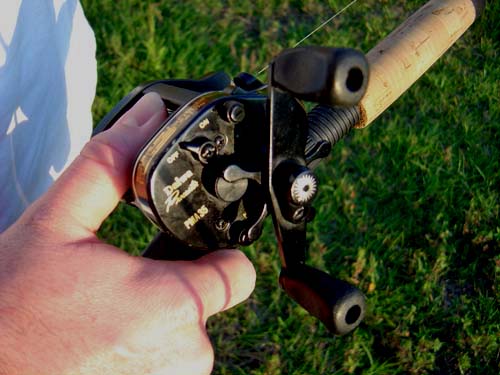Did anyone else see the recent episode of Nosler’s Magnum TV featuring African lion? The title is “Lions of the Moyowosi.” In this episode, the hunter clearly shoots a Lichtenstein’s hartebeest and a lion from a vehicle. I don’t know if this is legal where they are hunting, but I must presume it is or surely they would not have allowed the filming. I must say that it makes for pretty miserable TV viewing. I usually enjoy this show very much, but seeing two magnificent animals taken in this way turned my stomach. I tried to find an e-mail contact for the show to voice my displeasure, but the forums on the club’s website are for members only. Is anyone here a member?
Tags: Dangerous Game Hunting

For those who skipped English class the day they covered euphemisms, these drier sheets smell like dirt. Not just any dirt, mind you, but the nitrogen rich dirt in a container of nightcrawlers. Go into a hardwood bottom and kick up some rotting leaves, and you’ll get the idea. I use an unscented detergent with no UV brighteners in the wash, and then I dry everything with a scented sheet. One sheet in a load of clothes leaves a scent you can smell as soon as you open the door at the end of the cycle. If you store your clothes in an airtight container, they will keep the scent for months. I have a plastic container in my garage labeled “dirt box” into which I put all of my deer hunting clothes along with some scented wafers from the same product line. Incidentally, I wash my hands with scent-free soap before folding the clothes after I dry them. The Sporting Wife follows the same protocol when washing my deer hunting clothes, although it amuses her to no end to take so much trouble in making clean clothes smell like worm dirt.
One concern I had given the strength of the scent is that it might be too much. Empirical data suggests this is not the case, as I have had deer within seven yards of an open ladder stand for an extended period of time while using this product. I suppose the effect is no different than kicking the leaves out of one’s spot when hunting from the ground. I’m sure a deer could smell it, but it would be a familiar smell. Deer make scrapes, after all, and other animals burrow in denning and searching for food. If anything, the smell might arouse a deer’s natural curiosity. At any rate, I haven’t had any deer display a negative reaction to the scent wafers when I have placed them around my stand.
Tags: Reviews from the Armchair

Using a Baitcasting Reel
I am big fan of baitcasting reels, both for the distance and control they allow in casting as well as the raw cranking power they offer when you hang a good fish. Baitcasters can, however, be a little intimidating for those transitioning from spincasting or spinning gear because of the possibility of the dreaded backlash. Backlash occurs when the spool is spinning faster than line is coming off the reel, usually when casting into the wind or when the bait has stopped at the end of a cast. You must manually slow or stop the spool with your thumb to prevent the dreaded “bird’s nest.”
Because using a baitcaster is not a point and shoot proposition, a little practice is in order before heading to the water. “Educate” your thumb by practicing with a weight. Hold the rod at about waist level and press the release with your thumb firmly on the spool. Slowly ease off on the pressure until the weight begins to drop. Practice stopping and starting several times, and then try to let the weight drop almost to the ground before stopping it. This is the same timing you will need to stop a cast before it hits the water (or a tree.) As you get better, you will be able to feather the end of the cast to decelerate the lure just above the water’s surface and produce a nice soft landing. Once you get the knack, you’ll have far more control of the cast than you could ever achieve with spinning or spincasting gear.
For accuracy, there’s no substitute for backyard practice. Try to hit a 5 gallon bucket. Any bucket contact is good at first, but ultimately, you should be able to stop the cast over the mouth of the bucket and drop the weight inside. Scoring a few “buckets” will pay off in more fish on your next trip, and you can always decrease the size of the bucket for more challenge. Be sure to try overhand and sidearm casts, as the different grip angle changes the feel. You are creating muscle memory that will eventually allow you to take all conscious thought out of the cast for a moment of pure fishing Zen.
Tags: Tips from the Armchair


